OUR PROGRAM
Assisting Communities
FRC seeks to bridge community needs with design research by faculty and students within the College of Design, Construction and Planning, and departments across UF.
Enabling Sustainability
FRC encourages cities to view climate change solutions as opportunities to invest in redevelopment and adaptive transformation.
Helping communities across Florida develop the capacity to be more prepared for and more resilient to increased risk
For many Florida cities, climate change is not leading to sudden catastrophe but to an accumulation of smaller events such as nuisance flooding, housing shortages and water quality issues that cumulatively are creating large impacts. Such chronic concerns place a demand on municipal officials to act effectively in the short term, pushing long-term resilience off for another day. In the face of worsening climate conditions, the pressing needs of today can overshadow future needs, especially for municipalities without sufficient numbers of staff or for non-governmental organizations leading resilience efforts.
FRC provides unparalleled access to a broad range of University of Florida faculty, staff, students, and resources. In addition to the specific research needs that UF faculty can fill, FRC provides project scoping, coordination, project management, access to data, and eventual publication of findings. The program offers a design approach to community-scale adaptation and encourages cities to view climate change solutions as opportunities to invest in redevelopment and adaptive transformation.
PROJECTS
Port St. Joe
The 2019-2021 project focuses on the City of Port St. Joe, its surrounding region’s recovery from Hurricane Michael and their long-term resilience. On October 10, 2018, Hurricane Michael, the first Category 5 storm to hit the U.S. mainland since 1992, made landfall near Mexico Beach, twelve miles west of Port St. Joe. The storm devastated communities across the Florida Panhandle and into Georgia.
The FRC process began with community workshops that illustrated the values, goals, and needs of the residents of Port St. Joe. The information gleaned from these workshops was passed on to UF faculty in a Request for Proposals, to encourage faculty and student research initiatives that would explore community resilience. These Faculty-Led Research Initiatives were undertaken during the Spring of 2020, exploring built environment, social and cultural resilience.
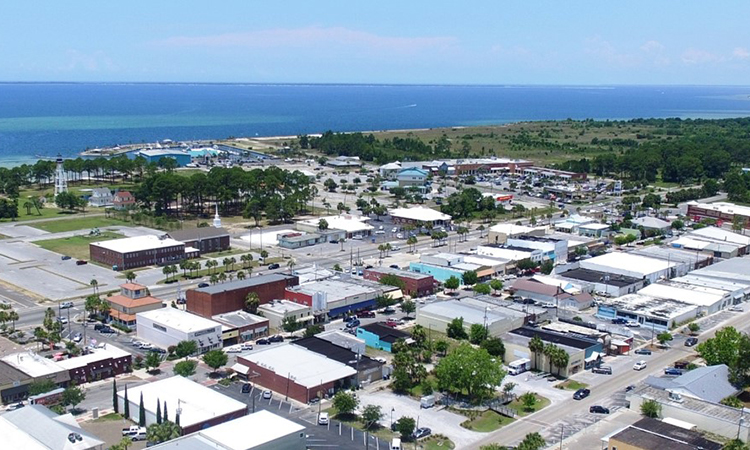
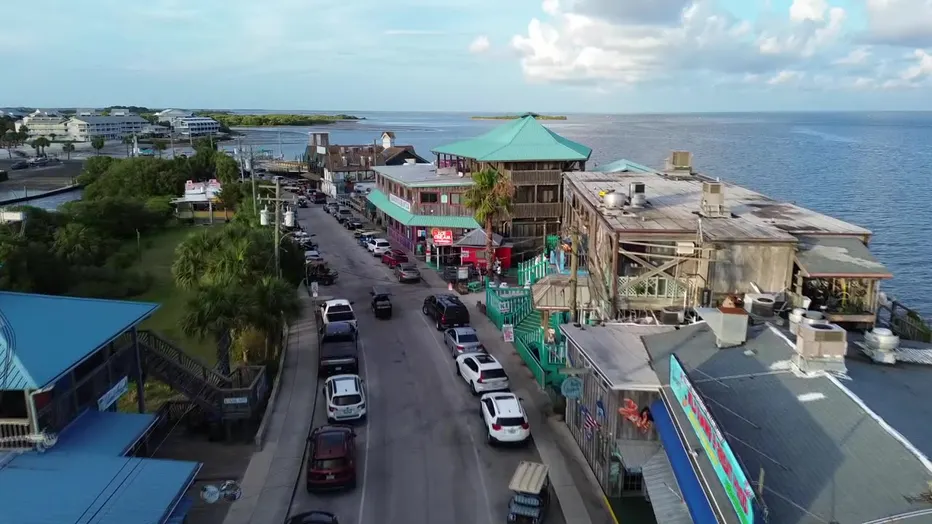
Cedar Key
Cedar Key is a historic community with a range of housing stock, ages, construction types, and economic values. This housing stock traditionally supported a diverse community across race, age, and economic status. Like many coastal communities in Florida, Cedar Key has seen property values rise substantially in recent years, making housing unaffordable to many people. Coupled with increased risk from rising tides/coastal flooding, structure age, and costs of upkeep, Cedar Key’s housing stock is vulnerable to storm damage as well as conversion to short-term rental properties. Cedar Key’s housing should be affordable, resilient to flooding, and diverse in order to support the diverse members of the community.
Jacksonville
Using the area of Jacksonville as a pilot location, Florida’s Digital Twin will reveal details and insights about buildings, roads, and wastewater infrastructure. Jacksonville was chosen to kickstart the project due to the city’s close relationships with UF Health researchers and local stakeholders.
And UF certainly has what it takes to build digital twins. HiPerGator, the fastest supercomputer in U.S. higher education, is on the UF campus, as are multiple experts in AI disciplines. UF also has a partnership with the AI tech company NVIDIA, and access to big data on Florida’s environmental, health, and infrastructure systems.
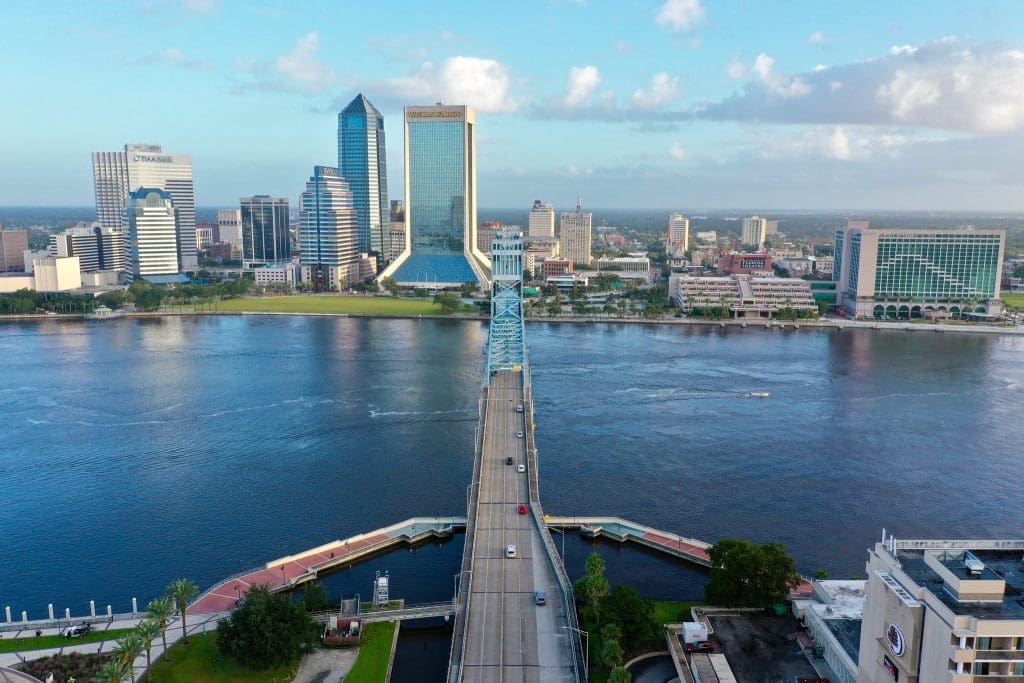
OUR TEAM
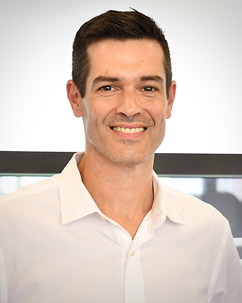
Jeffrey Carney
Director, Associate Professor
School of Architecture
Contact: j.carney@ufl.edu
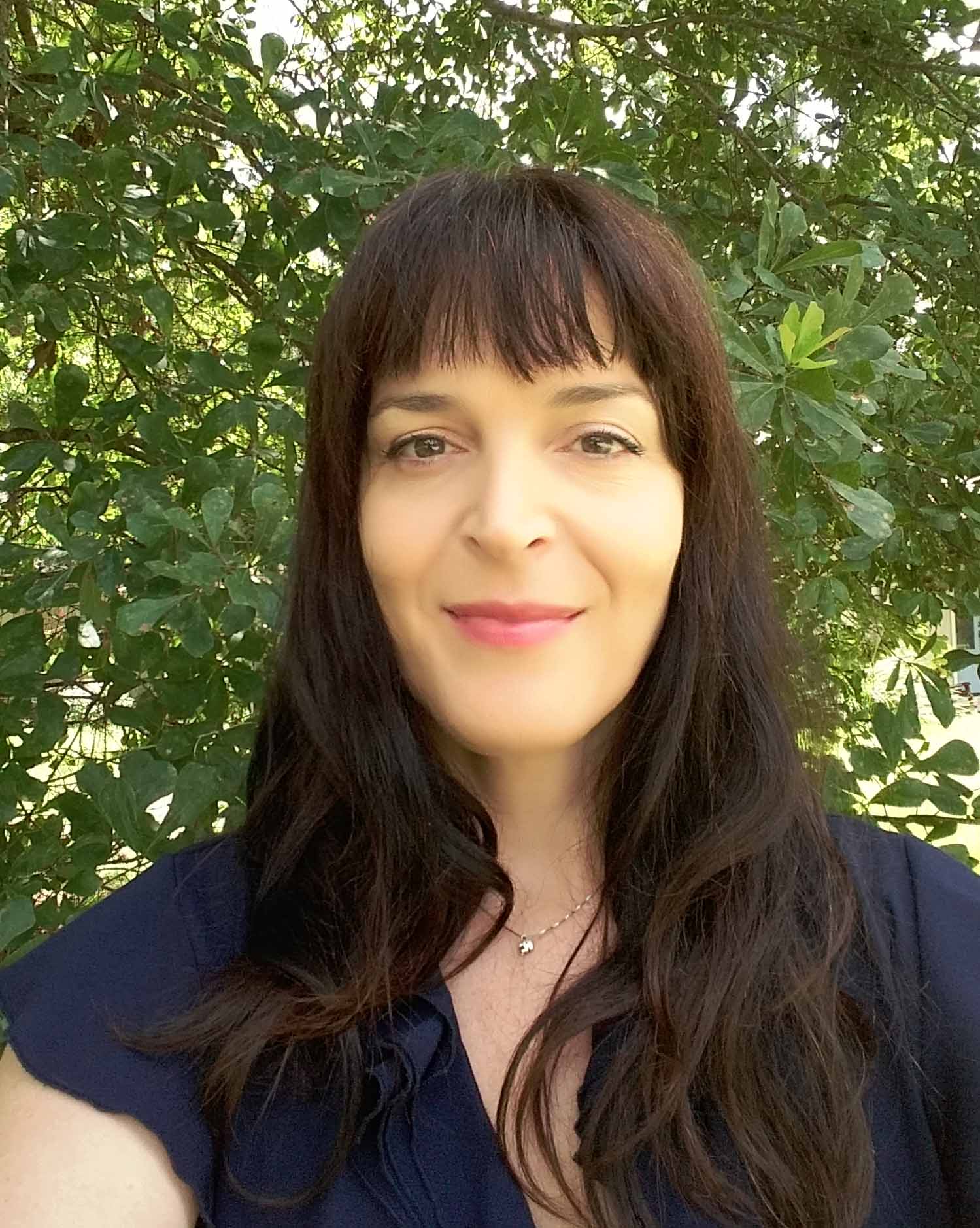
Carla Brisotto
Assistant Director, Assistant Scholar
School of Architecture
Contact: c.brisotto@ufl.edu
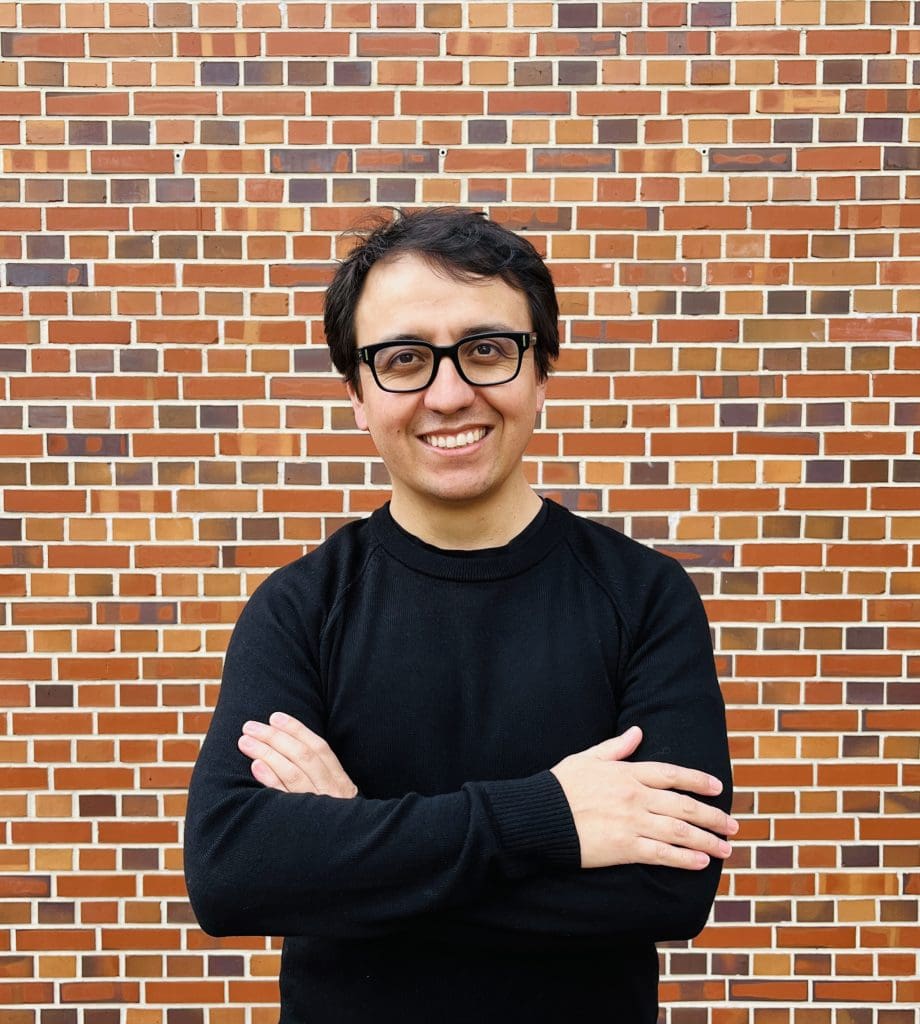
Christian Figueroa
Assistant Scholar
School of Architecture
Contact: callefigueroac@ufl.edu
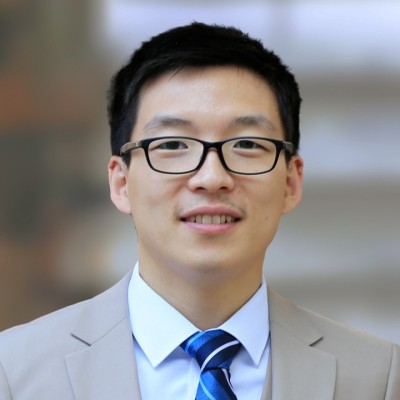
Changjie Chen
Assistant Scientist
School of Architecture
Contact: chj.chen@ufl.edu
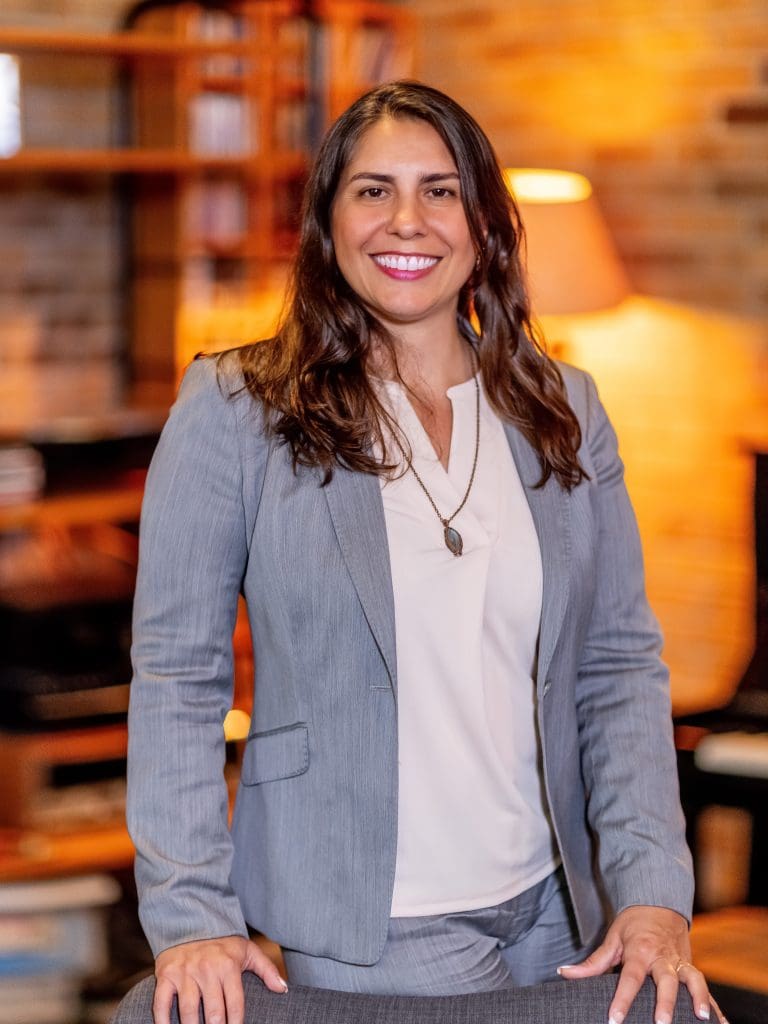
Sheyla Santana
Post-Doctoral Associate
School of Architecture
Contact: sheyla.santana@ufl.edu
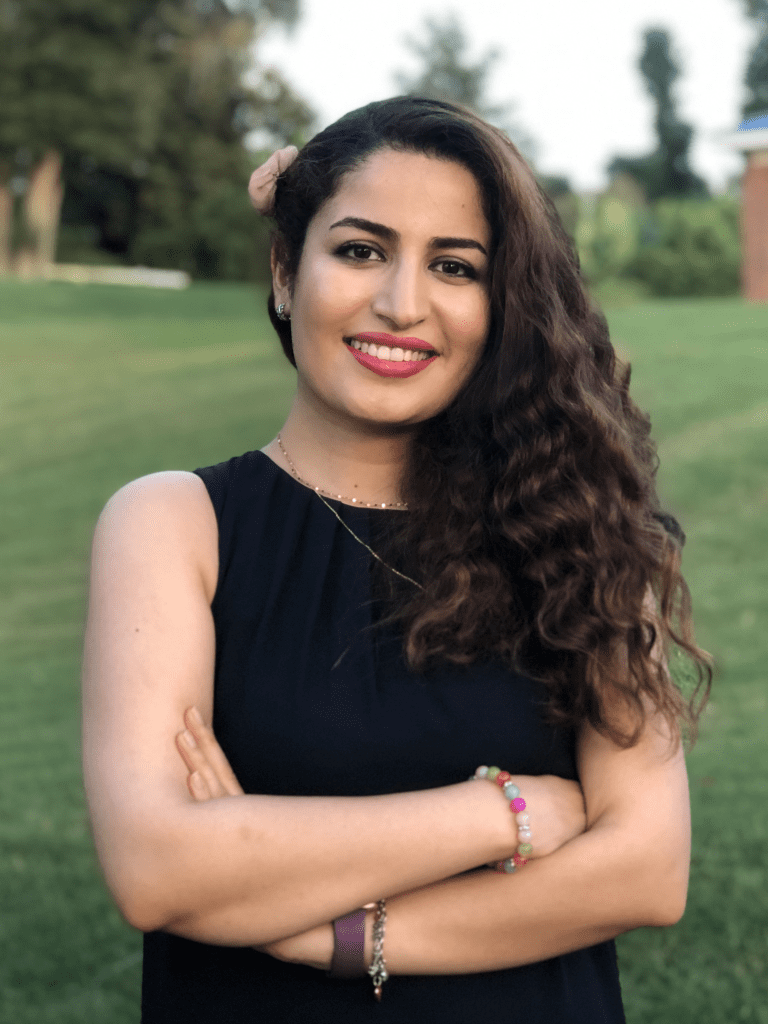
Forough Foroutan
Ph.D. Candidate
School of Architecture
Contact: forough.foroutan@ufl.edu
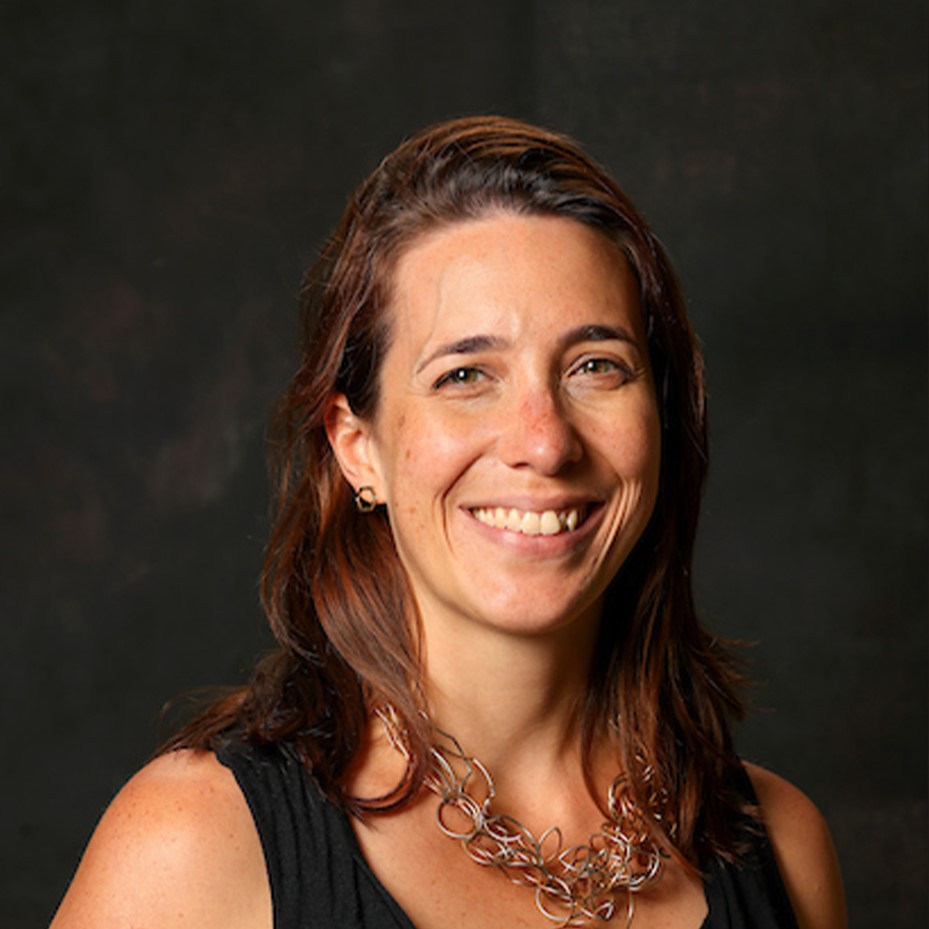
Ana Tricarico Orosco
Ph.D. Candidate
School of Design, Construction, and Planning
Contact: ana.orosco@ufl.edu
PUBLICATIONS
2023
Brisotto C., Carney J., Macaione I., Raffa A. 2023. CLIMATE CHANGE IN RECLAMATION LANDSCAPES: Adaptation between module and modularity, AGATHÓN | International Journal of Architecture Art & Design, Vol. 14, pp. 62-73
2022
Brisotto, C., & Lemes de Oliveira, F. 2022. Re-imaging Resilient Productive Landscapes: Perspectives from Planning History. Springer https://doi.org/10.1007/978-3-030-90445-6
Brisotto, C. 2022. Thinking Utopia: A Resilient Approach to Productive Landscapes by Yona Friedman. In: Brisotto, C., Lemes de Oliveira, F. (eds) Re-Imagining Resilient Productive Landscapes. Cities and Nature. Springer, Cham. https://doi.org/10.1007/978-3-030-90445-6_15
Carney, J., and Brisotto, C. 2022. Florida Resilient Cities program: facing climate change through design. In Melis A. (Ed.) “Comunita’resilienti: una raccolta di brevi saggi sulla capacita’ adattativa delle citta’.” Addendum to the Italia Pavilion Catalogue at the Biennale Architecture 2021
Brisotto, C., & Carney, J. “Co-design Strategies to Achieve Trust in Urban Living Lab: A Systematic Literature Review.” The Architectural Research Centers Consortium & the European Association for Architectural Educators’ 2022 International Conference, March 2-5, 2022, Miami, FL.
2021
Murphy, C.C., and Brisotto, C. 2021. From the Right to the City to The Right to The Countryside: Designing the countryside in a global social community. The Global City: The urban condition as a pervasive phenomenon: proceedings of the AISU Conference, Bologna, Italy, September 2019
Murphy, C.C., and Brisotto, C. 2021. A Productive city in a time of pandemics: Healthy food access as justice in Baltimore. The Plan Journal, 5 (2), doi: 10.15274/tpj.2020.05.02.5
2020
Carney, J., Larkin, C. (2020). Building Resilient Florida: Local adaptations toward statewide transformation. Quality Cities, 94(1), 50-51.
2019
Birch, T., Carney, J. (2019) “Delta Urbanism: Aligning Adaptation with the Protection and Restoration Paradigm in Coastal Louisiana”, Technology|Architecture + Design, 3:1, 102-114, DOI: 10.1080/24751448.2019.1571834
Birch, T., Carney, J. (2019) Aligning community resilience with the coastal restoration paradigm in Louisiana. In S. Laska (Ed.), Louisiana’s Response to Extreme Weather – A Test Case for Coastal Resilience. Springer International Publishing, DOI: 10.1007/978-3-030-27205-0
Carney, J., Agre, C., Twilley, R., Shelden, J., Hird, J. (2019) “The Giving delta” In E. Mossop (Ed.), Sustainable coastal design and planning. Boca Raton: CRC Press. ISBN: ISBN9780429458057